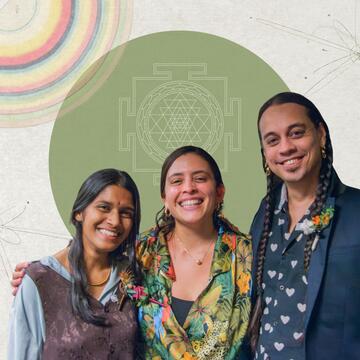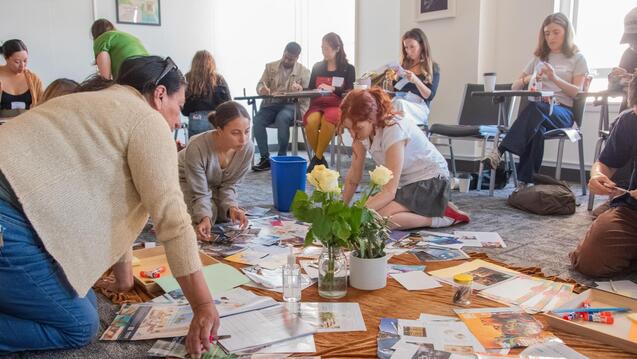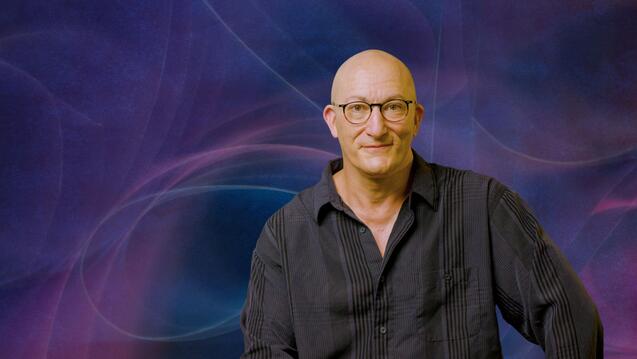Chair Christine Brooks spotlights CIIS’ fully online M.A. in Expressive Arts Coaching and Community Building—a transformative program that blends creativity, connection, and empowerment.
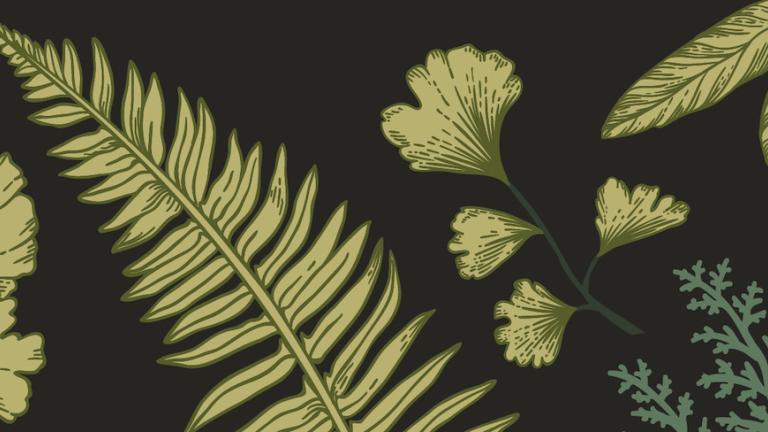
Returning the Self to Nature with Transformative Inquiry Professor Jeanine Canty
An interview with Transformative Inquiry professor and author Jeanine Canty.
Professor Jeanine Canty of the Transformative Inquiry department has spent her career working at the intersection of social and ecological justice.
Her new book, Returning the Self to Nature: Undoing Our Collective Narcissism and Healing Our Planet (Shambhala 2022), is a testament to her accomplished cross-disciplinary scholarship, uniting psychological investigation with a careful analysis of sociological and environmental trends.
The result is an empathetic but unflinching assessment of the current state of Western culture: it’s deeply unwell. This is not a punitive declaration, as so many other alarmist texts seem to issue, but instead a call to seek treatment. Professor Canty offers compassionate solutions instead of blanket condemnations, and the result braids together intimacy and insight into a generous whole.
We were fortunate to be able to sit down with Professor Canty to learn more about Returning the Self to Nature and about how we can help ourselves and others turn gently and resolutely toward a healed planet.
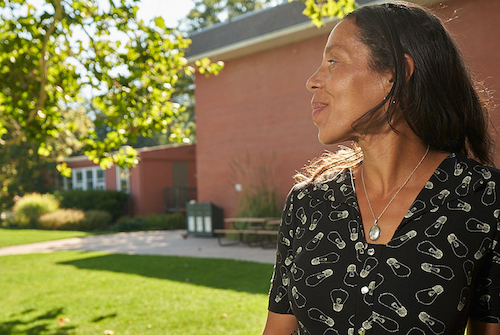
Where did the idea for this book come from?
I had been in a very turbulent relationship that left me really perplexed when it ended with a sudden, painful breakup. As an academic researcher, I often choose to stay with what occurred while also getting further context, because any turmoil or disorienting dilemma merits attention. I knew this person probably had some kind of personality disorder. I talked to many colleagues within the counseling and psychology areas about it, and I stumbled on some of the literature on narcissistic personality disorder (NPD), and it hit on the behaviors I had experienced to a T.
During that time, I was also doing a meditation instructor certification. For our final project we had to choose an extreme state that we could potentially work on with a client in the future, and so I chose NPD. The immersion into that literature, alongside my own experiences, also brought me back to my main field, which is Ecopsychology. Some of the early writers in Ecopsychology talked about the relationship between consumerism and narcissism, particularly in the U.S. and other Western societies, and something really congealed: I saw both the sadness of people suffering from NPD and the parallels of NPD to our collective culture and the damage we are doing to Earth.
In our society, NPD sufferers are highly demonized, with therapists and pop psychologists say to cut these people off totally. What happens is that they tend to get “recycled” back into the larger pool. In environmental justice there’s this term, “not in my backyard.” We’re just pushing the problem onto someone else.
My background looks more at collective and community orientations, so anyone’s personal pathology is really about the larger community. I felt a strong compassion, even though someone who suffers from NPD is not necessarily pleasant and can be highly dangerous. But it felt like a larger community issue, and I dug down into the connection between the personal level of narcissism and our collective society, noticing that so many of the patterns of NPD are shared in our current society and relate to the damage we’re doing to the earth.
Your compassion for those suffering from NPD—and they truly are suffering—is so important. Do you have visions for how we can treat this, culturally speaking?
It’s really challenging to work with anyone with NPD. There are therapists who won’t even take clients who have it, and it’s hard to diagnose as well. For someone with NPD, those patterns are formed in early childhood, when they have one of two faulty patterns with their primary caregivers within object relations theory: either the caregiver doesn’t give the child enough attention, or the caregiver makes the child hypersensitive to the caregiver’s needs. In both, the child ends up with mistrust of their caregiver and the larger world, and to keep themselves safe they create a false reality in which they are the most important person in the world. This inhibits them from forming genuine bonds with others.
The book is not about changing people with NPD, but looking at our collective narcissism. Everyone has certain level of narcissism, and to some degree this is healthy. There is a middle ground with narcissism—we shouldn’t have too much or too little. We can develop awareness for when we might be shifting into the collective narcissism, and through self-reflection and reorientation of behavior we can stop those patterns.
In our current society, if we shift to an Ecopsychology framing, the primary caregiver is Mother Earth. So many of us have forsaken this connection: we don’t spend time outside, we don’t have rites of passage, we don’t have skill in connecting to the Earth. Global corporatism has replaced that relationship, and we’re constantly seen as consumers. It keeps us small, keeps us insecure: do I have the right body, the right partner, the right job? All these superficial values take the place of genuine connection and compassion for other humans and for other sentient beings, including Earth.
How should we disentangle ourselves from this consumerist model?
The process of waking up and acknowledging that we have individual and collective entrenchment in a narcissistic world is important. We live in a society that is dependent on us being addicted to ourselves. When we understand this is a false, constructed reality, we can start going deeper.
A big part of this is tending to our emotions when we wake up to the reality of this disconnection and to the environmental crisis. A lot of extreme emotions can surface: we may feel anger, despair, or apathy, and emotions associated with trauma like guilt and shame. We need to do the work of staying with our emotions and work with what’s surfacing. We have to feel it, not just abstractly think about it.
Another component of this is developing the skill to truly love ourselves, unconditionally. This isn’t selfish: we’re all special, and we’re not more special than anyone else. We are all so precious.
Another area is mindfulness. When we can learn to attend to our experience and our capacities right now, and start catch ourselves in our patterns and redirect anything we need to. It’s one of the most astounding gifts of life, to be able to drop into this moment, even if this moment has hardship or pain. Because there are moments of beauty too, of gratitude, and of love.
Where does this development lead, in your model? Where can we strive to see ourselves?
In Ecopsychology and Deep Ecology there’s something called the Ecological Self. This is developing the capacity to identify with and love other beings, such as a tree, a river, another animal. We notice that we’re in relationship with this being, and we really care about their wellbeing. As we develop our ecological selves, we develop our multicultural selves, too—we extend the practice to humans who are different from us. The ability to build compassion toward others—other humans, other sentient beings, and the Earth—ameliorates the narcissistic tendency to have very low compassion for others.
We see the self-protective mode, the low-empathy mode more and more even in people who don’t have NPD. We need to spend more of our time serving others and understanding how others are feeling. It’s a lost art in our society, but whether it’s helping your elder neighbor with shopping or babysitting a friend’s child or cooking a meal—even if it’s smiling at a stranger, connecting with people—that cultivates compassion.
The last area I talk in the book is a need for grace. Some people are turned off by anything spiritual, but regardless of your engagement with spirituality we can remember that we’re only human, part of a system that’s so much bigger than we are, and we’ll never have the capacity—individually or collectively—to understand everything. If we can surrender, and ask for help, and recognize that we don’t have to know and do everything, we can find allies and tenderness.
Tenderness is such an appropriate word. Your book demonstrates such remarkable and, it seems, deliberate vulnerability — is that tenderness and vulnerability part of your prescription for greater natural wellness?
We naturally have worldviews that keep us safe, and extremes of NPD come out of this self-protective urge to be cocooned. However, that can eventually cut us off from the world. To get back, we have to learn to trust in our own capacities and in the basic goodness of others.
One of my favorite authors is a psychologist named Chellis Glendinning. She developed the theory of the primal matrix, which describes the components of our interconnectedness. The first part is a sense of belonging—belonging to bodies, to our homes, and to our ecosystems. So many of us are conditioned to be fearful and mistrustful, and to experience everything as a threat. When we inhabit our bodies and connect with sensory experiences of where we actually are, we develop more trust again.
The second is unique sense of self. We all have a unique purpose in life—that’s not the same as a career! We’re all born into the world with a gift to give, and many gifts to receive, and it’s the role of the larger community to help us recognize what our gift is.
Finally, we have the amazing ability to experience non-ordinary states of being. This isn’t about psychedelics or three-month retreats, but rather about the simplest things: experiencing the extraordinary in the ordinary. Crying is a beautiful experience—smelling something you baked—growing a garden—there are so many moments each day that we pass by, but it’s our ability to drop into the precious, everyday experiences of life that can truly help us.
Related Academic Programs
Related News
Explore CIIS’ groundbreaking Bachelor’s program and the bold vision behind its creation.
At Human + Tech Week in San Francisco, Bruce Alderman of the Blue Sky Leaders program revealed how human wisdom and presence redefine leadership in the AI era.
